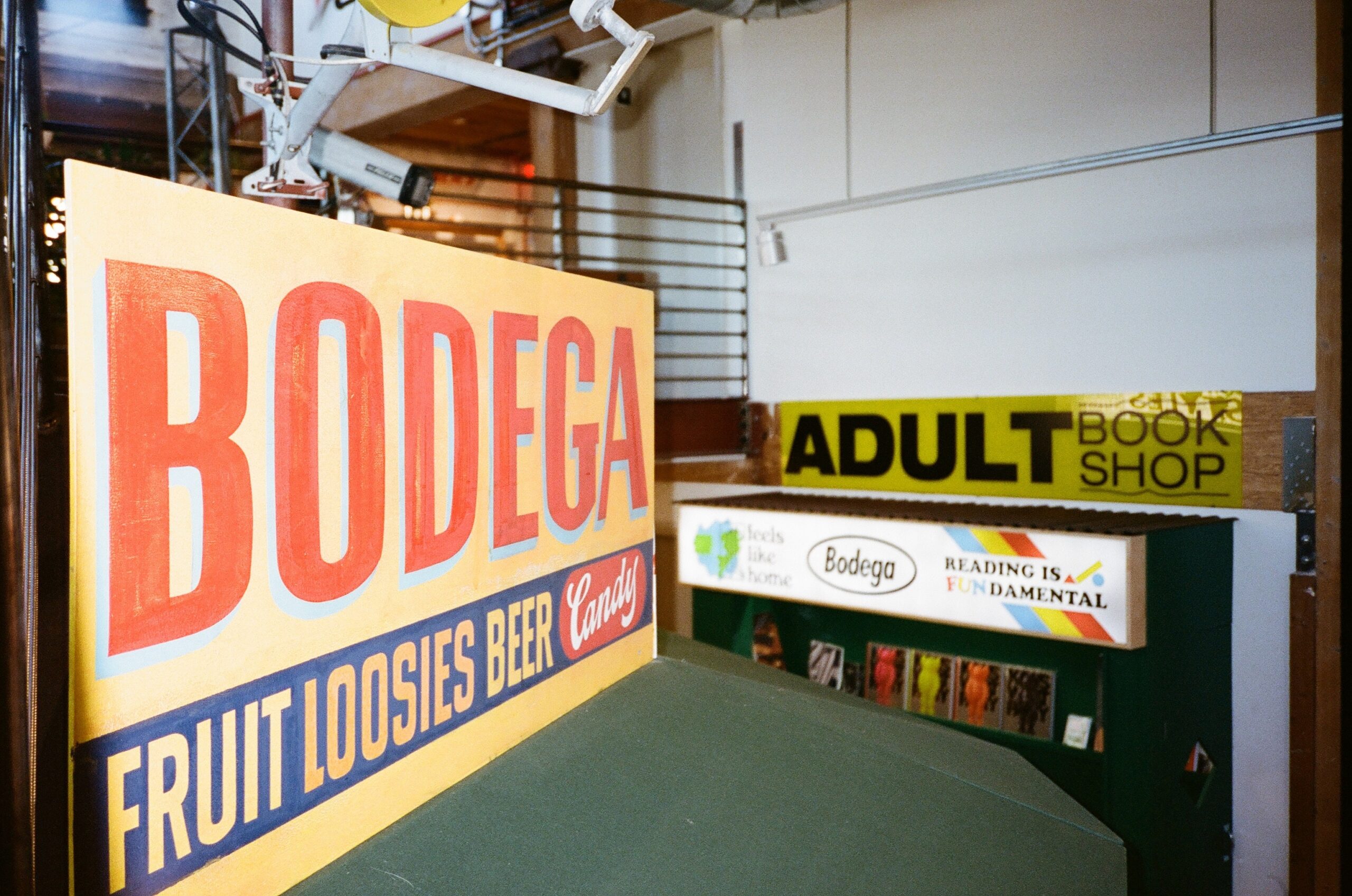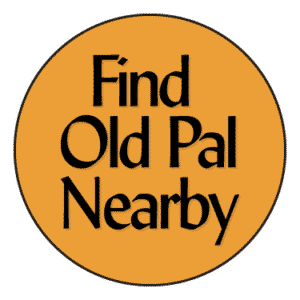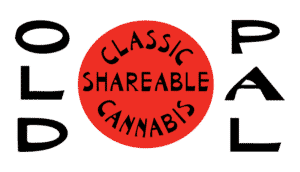For anyone coming up in the early 2000s, New York City was the epicenter of seismic creative energy. A few burgeoning boroughs like the Lower East Side were not only birthing but also incubating the talent of misfits and the artistic mayhem that ensued. New York already had a pretty baked in skate scene, one that autre Larry Clark made central to his movie Kids that was barely a decade old back then and graffiti had always been part of the city’s visual vernacular. Remember, this was the last pre-Internet generation so magazines like Mass Appeal and Vice—which boasted free stacks just about anywhere you looked—were the only means of exporting a culture that was dusting off the ashes of 9/11, making their own luck and for one of the first times, making money en masse off their practices.
As a result, shops catered to scarcity with drops from their hometown heroes while big brands looked to the streets for collaborative partners and artists found their footing in what that meant for their bank balance. Even big art players like Jeffrey Deitch looked to risk-taking curators like Aaron Rose who put art from the streets onto white walls with his seminal project space, Alleged Gallery. Hip-hop provided the soundtrack that punctuated this voracious creative appetite of relentless input and output.
All this energy had a global ripple effect with cities like Boston matching the enthusiasm; in fact, it’s there that Bodega co-founder, Oliver Mak galvanized his passions for music and street art into a career working with The Fader / Cornerstone—two other New York entities that were giving the most obscure acts their fifteen minutes of fame—as well as other community projects. He was already seasoned in the inner workings of night clubs and a long list handshakes and hi-fives put him down the path of a list of projects that came as a result of having great taste and the hustle to curate cultural moments. But the double-edged sword with having those types of connections is that others will almost certainly hire you to support their dreams which often comes at the cost of ignoring yours.
Recognizing that ambitions are almost better realized on your own, Mak, along with partners Jay Gordon, and Dan Natola, opened Bodega in 2006 putting Boston on the map for the sneaker freaks and streetwear heads. “The original intent was to come at it from the angle of a conceptual space,” adds Mak. “Retail almost came secondary because we knew about marketing and art. We could shut down the space to have a show and then make it a shop again. Over the years we got bigger and better at it.”
The combination of their collective experience and precision intel, built Bodega not only as a global retail magnet greater than the sum of its parts, but also fortified a sustainable model that led to opening a second location in Los Angeles. “Most of the cultural or counter-culture references came from New York, LA or Tokyo. LA had the weirdness aspect we like, that sort of David Lynch feel to it,” Mak says when asked what prompted the opening of Bodega LA in 2018.
They took their time before landing just shy of LA’s Arts District; in fact, they cut the ribbon at their Boston store almost twelve years prior to opening their Downtown LA location. Over that time, the streetwear industry not only exploded but technology caught everyone up on what companies were doing ranging from niche bedroom brands to the Virgil Ablohs of the world. Rappers were larger than life, often augmenting their income with namesake labels and lines wrapped around the block for drops and all the while, Bodega was building trust for their customers brick by brick. “LA was a need for us to spread our wings and become a national brand. We really prided ourselves in achieving a level of notoriety in a market that’s not about fashion or streetwear. Before we opened in Boston, the market didn’t exist. There were key players who lived there but culturally it just didn’t exist,” says Mak.
By the time they opened their doors at the end of the retail compound in The Row with no signage behind a nondescript produce delivery bay, Bodega was already a well-established presence. Their coveted assortment of sneakers and apparel along with globally celebrated events not only made them instant legends in the community but opened up more opportunities for connection and storytelling, something that shares equal attention with the products they put on their shelves.
“When we have a project—whether that’s a private label or collaboration—we try to figure out how to anchor that product into culture like telling the story behind the origins of design. For example, the Nike Dunk we did that was released in December 2019, we wrestled with getting a big celebrity to help launch it. Instead, we focused internally on the people who make up Bodega. There were a couple of different storylines but in one we focused entirely on our staff and treated them like a yearbook photo. It didn’t matter if you were on the sales team, a director or in the warehouse, everybody was on the same screen together. These are the people who bring the products and stories to life. On the same topic, we had another storyline going on with that shoe because of the product design, nostalgia and youth,” Matt Zaremba elaborates, Bodega’s Director of Marketing.
This sense of belonging is amplified through their content as not only support for why to buy but also a reason to care. If immediacy is our drug, we can find our fix just about anywhere but everyone at Bodega is encouraged to adopt an intentionality that makes customers stop, look, listen and learn. “Bodega is known for storytelling. We try to use that as an opportunity with every project we involve ourselves in to tap into a story that will resonate with some percentage of our consumer base and they can become ambassadors for that information in the future. The hope is for the generational exchange for the future. We want to amplify what’s happening right now while also honoring the past,” Zaremba explains. “All three of us are from a generation in which the past was very important for us to understand the present. I’m starting to see that come back around again.”
As we lament the early 2000s and the last generation of creatives who were free to be themselves in relative secrecy, we can’t ignore that cannabis is the new wild wild west and needs partners like Bodega to help legitimize legalization. Smoking is a timeless tradition for iconoclasts and arty types to tap into some brain waves that have informed so much. “The sweet leaf is part of the creative process for so many people in streetwear,” Mak adds while joking that they mandated early Bodega staff to work while high. “We’ve also become somewhat of a head shop in the last two years as the marijuana connoisseur has dipped more into the fashion space with stores like Mister Green. Everything just looks so nice now coming from ceramics companies so we’re not just looking at bongs with an evil clown all over them. Things look more refined and so much of that comes from LA; it’s where we got our whole weed culture from. On the east coast we looked to that as another way to do things, another path we could try out.” It makes total sense that Bodega would help lead that conversation. On the second floor of their LA shop among the rare books, capsule collections and revolving displays of seasonal looks, two glass cases command as much of your attention as do the sneakers downstairs. Inside are smoking accessories that double as functional pieces of art and gear to get you high. Fun is also central to the Bodega ethos and cannabis culture is experiencing a Renaissance as more people from the fashion and streetwear space seize the opportunity. “A lot of brands like Summerland help elevate the experience too. If you have a piece on your table it looks like a sculpture. I always loved Old Pal from the jump with the intentionality and branding of it all. It felt familiar, like an old friend. There are so many social components to smoking that makes Old Pal shine in its own way. The crossover to the apparel and the goods is just so well done that’s what got us excited to carry it,” adds Zaremba when asked what inspired them to carry Old Pal Provisions. For a moment in the interview, things felt similar to the early 2000s but instead of magazines feeding the hype machine, stores like Bodega now serve as curators bringing people together with a shared passion for culture, clothes and all details in between. We’re thankful that Old Pal is part of that conversation as America unpacks a sordid relationship with cannabis. Hopefully the youth finds hope, validation and empowerment with partnerships such as this as we march together towards national legalization. Visit Bodega Boston at 6 Clearway St, in Los Angeles at 1320 E 7th St #150 or shop for Old Pal Provisions on-line at BDGAStore.comB













